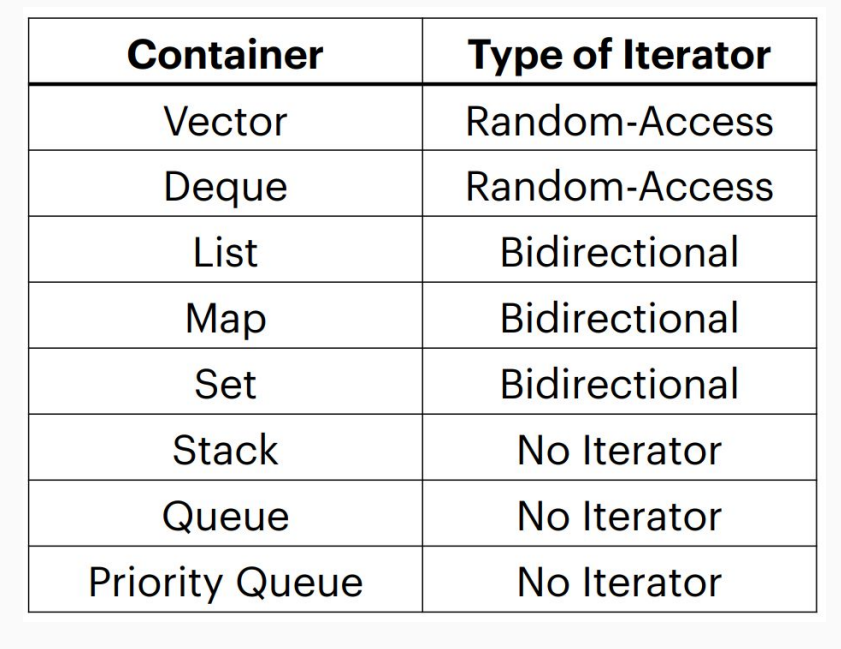Lec 6: Iterators and Pointers¶
Iterators¶
An iterator (of a container)
- can let you access all data in containers programmatically!
- has a certain order; it “knows” what element will come next
- not necessarily the same each time you iterate (esp. for associative containers)
STL iterators¶
In STL, all containers implement iterators, but they are not all the same.
Nonetheless, they share a few operations:
- Initializing:
auto iter = s.begin() - Incrementing:
++iter - Dereferencing:
*iter - Comparing:
iter != s.end() - Copying:
auto new_iter = iter
The hierarchy of iterators¶
graph RL
u4[Random Access] --> Bidirectional --> Forward --> Input
Forward --if not constant iterator--> Output
Input and output iterators are the most limited types of iterators: they can perform sequential single-pass input or output operations. Forward iterators have all the functionality of input iterators and -if they are not constant iterators- also the functionality of output iterators, although they are limited to one direction in which to iterate through a range (forward). All standard containers support at least forward iterator types. Bidirectional iterators are like forward iterators but can also be iterated through backwards. Random-access iterators implement all the functionality of bidirectional iterators, and also have the ability to access ranges non-sequentially: distant elements can be accessed directly by applying an offset value to an iterator without iterating through all the elements in between. These iterators have a similar functionality to standard pointers (pointers are iterators of this category).
Note:
- In some sense, iterators are kind of restricted pointers. Random-access iterators have almost the same functionalities as pointers.
- Input iterators can appear at the RHS of the
=operator, i.e. input its value to a variable auto val = *it- Output iterators can appear at the LHS of the
=operator, i.e. output the value of a variable to it *it = val- Forward iterators are the minimum level of functionality for standard containers.
- Bidirectional iterators support
--it - Random-access iterators support
it + 5
